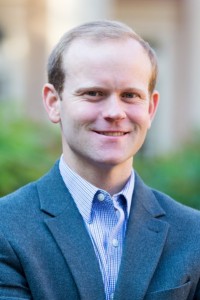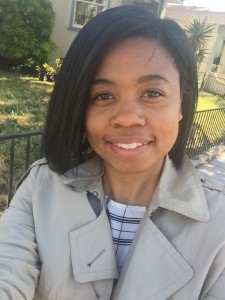 Are you interested in pursuing a career in media law or policy? Are you worried that you won’t be able to take that plum summer job in New York, Washington, or Los Angeles because it’s just too expensive to live there. Well, the Center for Media Law and Policy is here to help. For the sixth year in a row, the Center will be providing stipends to UNC law and graduate students who have a summer job in the field of media law or media policy. In past years, UNC students have received Center stipends while working at a wide range of organizations, including the Federal Communications Commission, National Public Radio, Electronic Frontier Foundation, Foundation for Individual Rights in Education (FIRE), Future of Privacy Forum, and Berkman Klein Center for Internet & Society.
Are you interested in pursuing a career in media law or policy? Are you worried that you won’t be able to take that plum summer job in New York, Washington, or Los Angeles because it’s just too expensive to live there. Well, the Center for Media Law and Policy is here to help. For the sixth year in a row, the Center will be providing stipends to UNC law and graduate students who have a summer job in the field of media law or media policy. In past years, UNC students have received Center stipends while working at a wide range of organizations, including the Federal Communications Commission, National Public Radio, Electronic Frontier Foundation, Foundation for Individual Rights in Education (FIRE), Future of Privacy Forum, and Berkman Klein Center for Internet & Society.
The Center’s summer grants program is administered in conjunction with the UNC School of Law’s Public Interest Summer Grants Program, which provides funds to law students taking unpaid or low-paying public interest jobs. Funding for these grants comes from several sources, including the Carolina Public Interest Law Organization (CPILO), private funds given by generous donors, law school funds allocated by the Dean, and student organizations that fundraise to support students working in a particular area of interest. In 2016, the law school awarded more than $160,000 to 64 students.
Wait, you don’t have a summer job yet?! Head over to our media law and policy Jobs Center, where you will find dozens of summer (and post-graduate) employment opportunities. You can easily find the perfect job for you by using our advanced search feature to search by location, keyword, or practice area. Also, try browsing by job type or category for a more expansive look at the jobs listed. Still not sure what you want to do for the summer? You can read about the summer experiences of your fellow students on the Center’s blog.
Requirements and Information on How to Apply for a Summer Grant
For UNC law students interested in both a Center grant and a law school grant, the deadline for applying is March 12, 2017. The application process and general requirements for both grants is the same. Simply check the box on the application for the law school’s Summer Public Interest Grant indicating “Media Law or Policy” under the heading “Substantive Areas Your Summer Employment Will Involve” and you will be automatically considered for Center funds in addition to the law school grant. If you have already filled out an application, just log back in and check the box for “Media Law or Policy”; you can make changes to your application until the application deadline.
For UNC graduate students and law students who are not eligible for law school funds, the deadline for applying for a summer grant is also March 12, 2017, but you will need to download the application form and send it directly to us at medialaw [at] unc.edu along with the other supporting material described below.
Please note that you must have a job offer from one of the following types of organizations to be eligible for law school funds: a nonprofit organization (an organization that is described in section 501(c) of the Internal Revenue Code of 1986 and exempt from taxation under section 501(a) of the Code), a legal aid office, a state or federal government agency, a public defender office, or a district attorney office. If are a UNC graduate student or law student who is not seeking law school funds, your employer does not need to meet the requirements described directly above.
Applications will be evaluated based on (a) your demonstrated commitment to working in the areas of media law or policy and (b) the quality of your essays (each essay must not be more than 500 words).
Required documents include:
- Resume (without grade information)
- Offer letter from your employer
- Essays (no more than 500 words each) *
* Essay questions:
- Essay #1: Describe your work responsibilities and how they relate to media law or media policy.
- Essay #2: Describe your commitment to public service. How have your past interests and work experiences contributed to your proposed summer internship responsibilities?
- Essay #3: How do you see this summer work experience contributing to your long-term career goals?
Be sure to check out these Tips for Writing a Strong Grant Application. You will be notified of a decision in early April.
 UNC media law Ph.D. student Brooks Fuller will begin work as an assistant professor in the Manship School of Communication at Louisiana State University in the fall. Brooks will teach classes in media law, ethics, and First Amendment issues.
UNC media law Ph.D. student Brooks Fuller will begin work as an assistant professor in the Manship School of Communication at Louisiana State University in the fall. Brooks will teach classes in media law, ethics, and First Amendment issues.
 Are you interested in pursuing a career in media law or policy? Are you worried that you won’t be able to take that plum summer job in New York, Washington, or Los Angeles because it’s just too expensive to live there. Well, the Center for Media Law and Policy is here to help. For the sixth year in a row, the Center will be providing stipends to UNC law and graduate students who have a summer job in the field of media law or media policy. In past years, UNC students have received Center stipends while working at a wide range of organizations, including the
Are you interested in pursuing a career in media law or policy? Are you worried that you won’t be able to take that plum summer job in New York, Washington, or Los Angeles because it’s just too expensive to live there. Well, the Center for Media Law and Policy is here to help. For the sixth year in a row, the Center will be providing stipends to UNC law and graduate students who have a summer job in the field of media law or media policy. In past years, UNC students have received Center stipends while working at a wide range of organizations, including the 
 I’m excited to announce that the Center will be hiring a
I’m excited to announce that the Center will be hiring a ![“We all have the right to [RAP]PS.” RAPPS stands for religion, assembly, petition, press and speech. — Christine Bang, UNC ’17](http://medialaw.unc.edu/wp-content/uploads/2016/10/bang-300x169.jpg)